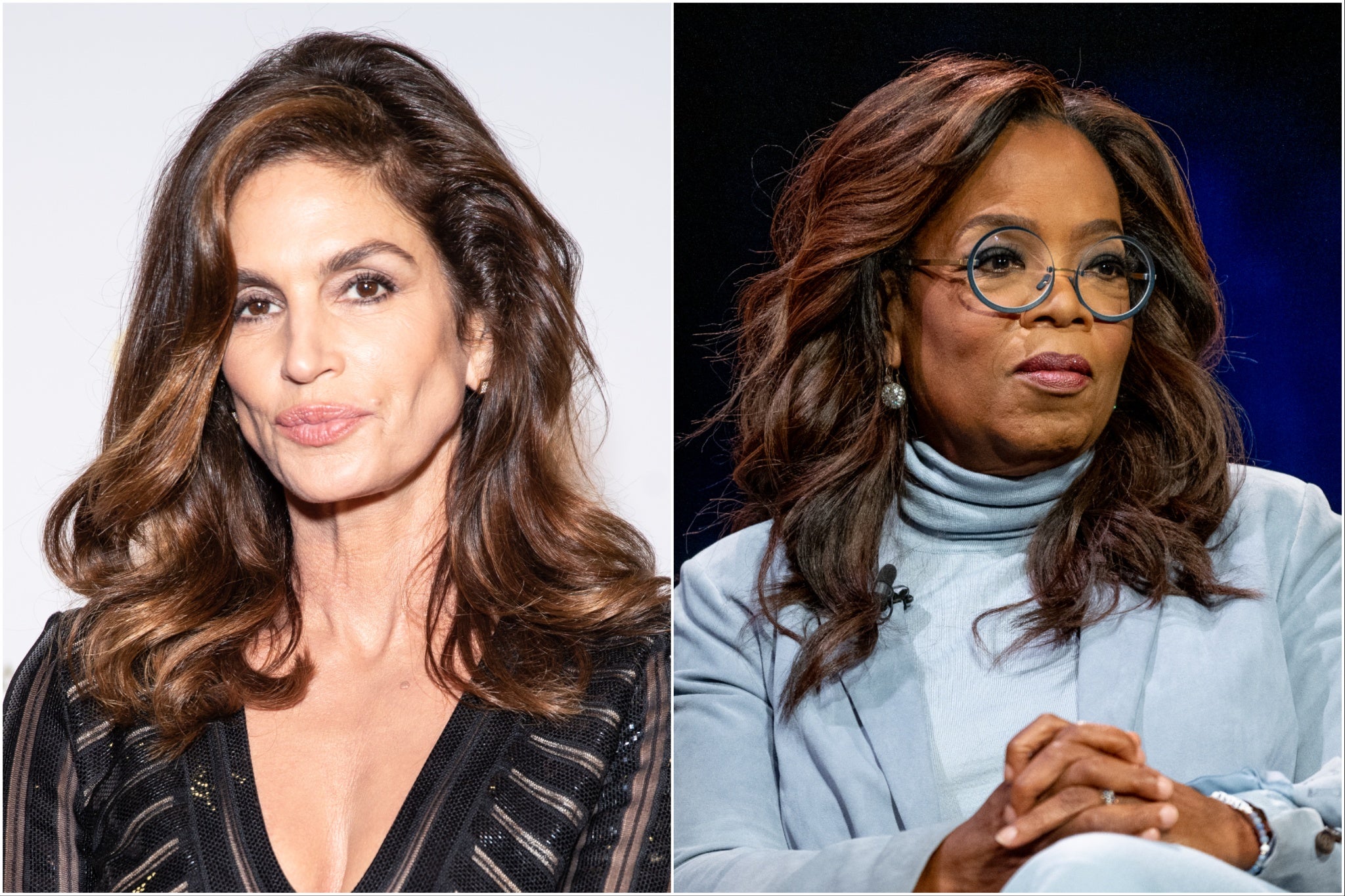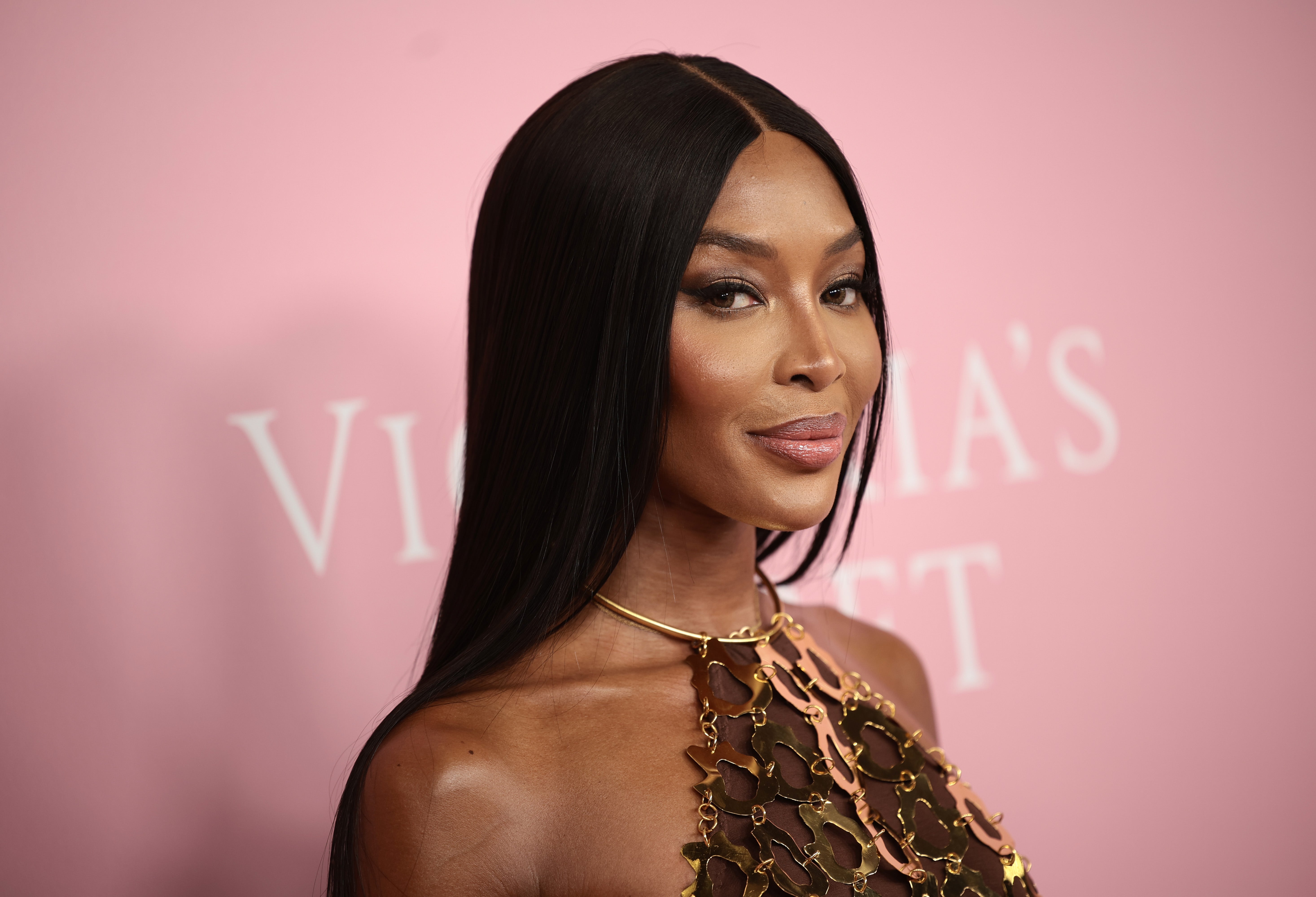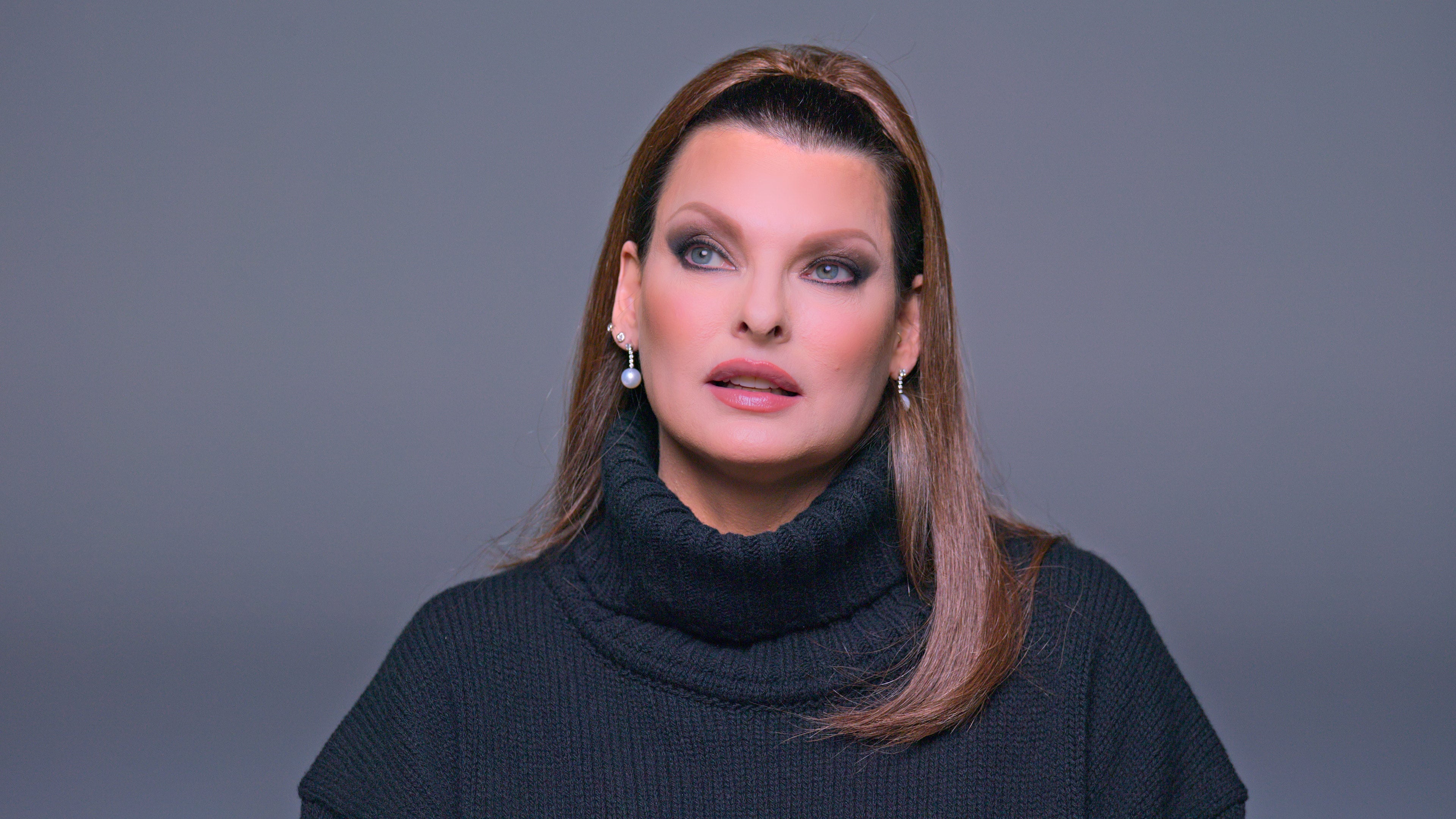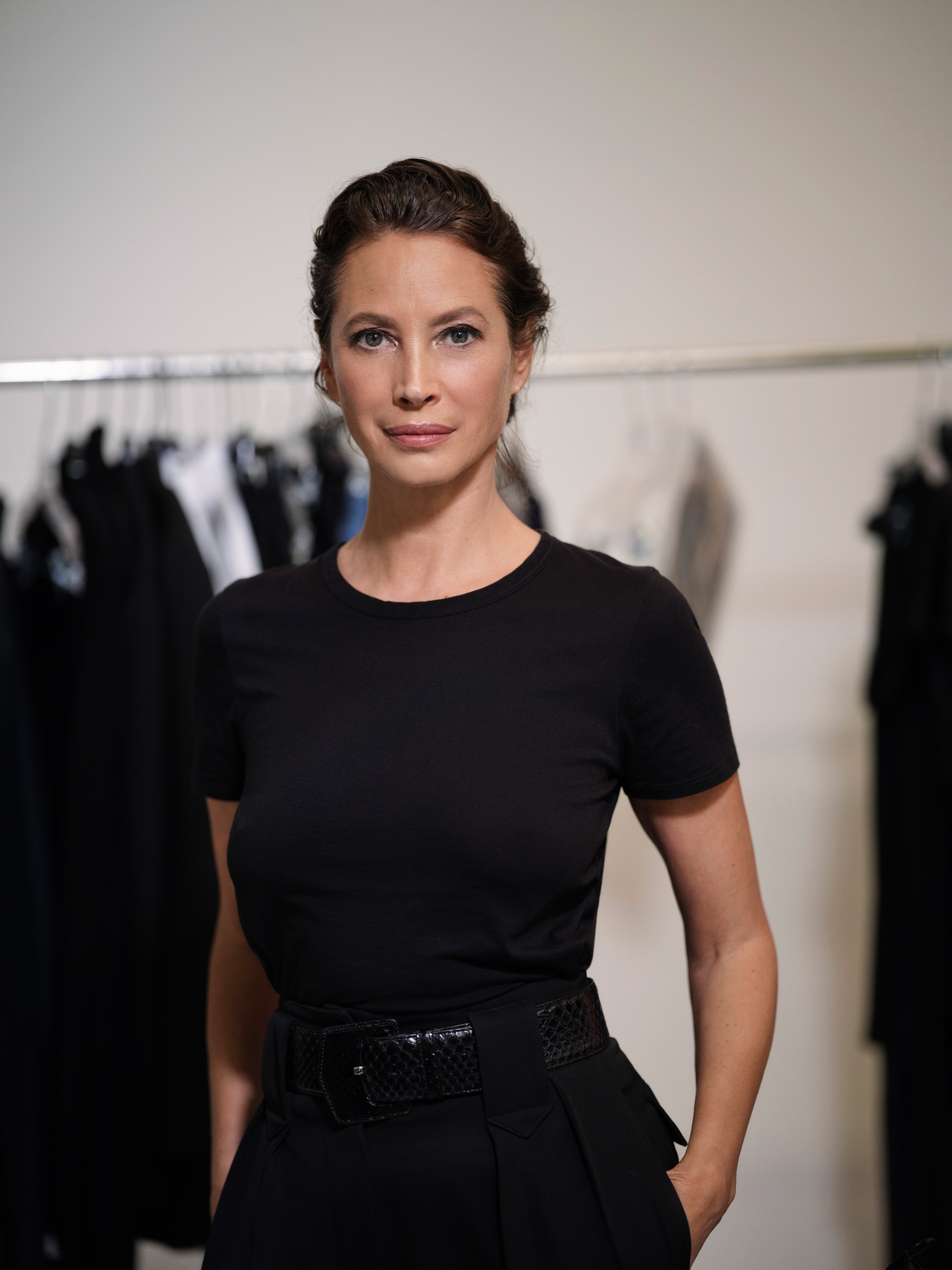Groping, abuse and racism: 10 of the most shocking revelations from The Super Models TV show
The early careers of the original super models, Naomi Campbell, Linda Evangelista, Christy Turlington and Cindy Crawford, are depicted in a new Apple TV+ series
Your support helps us to tell the story
From reproductive rights to climate change to Big Tech, The Independent is on the ground when the story is developing. Whether it's investigating the financials of Elon Musk's pro-Trump PAC or producing our latest documentary, 'The A Word', which shines a light on the American women fighting for reproductive rights, we know how important it is to parse out the facts from the messaging.
At such a critical moment in US history, we need reporters on the ground. Your donation allows us to keep sending journalists to speak to both sides of the story.
The Independent is trusted by Americans across the entire political spectrum. And unlike many other quality news outlets, we choose not to lock Americans out of our reporting and analysis with paywalls. We believe quality journalism should be available to everyone, paid for by those who can afford it.
Your support makes all the difference.A new Apple TV+ documentary, which follows the careers of modelling stars Naomi Campbell, Linda Evangelista, Christy Turlington and Cindy Crawford, has brought several shocking and formerly unknown revelations to light.
The Super Models is a four-part series spotlighting the four model’s early careers and how they were treated working as young women, and the most sought-after models in the fashion industry in the late Eighties and Nineties.
Campbell, Evangelista, Turlington and Crawford, now in their fifties and with children of their own, offer a snapshot into their early careers, like Turlington’s pre-modelling work experience that involved babysitting and cleaning toilets, or Campbell’s experience of having her bag stolen in New York and running out of money.
Each episode has a theme – “The Look,” “The Fame,” “The Power” and “The Legacy” – with each model addressing the camera in intimate interviews, featuring archival footage from their heyday.
While each of the models discussed the “glory days” or “golden years” of their careers in the Nineties, Evangelista admitted in the documentary that those years “weren’t always perfect”.
As all four of the models recount their own experiences of misogyny and mistreatment working in the fashion industry, here are 10 of the main revelations from Apple TV+’s The Super Models:
Evangelista said she regrets ever saying that she doesn’t get out of bed for ‘less than $10,000 a day’
In 1990, Evangelista uttered one of the most iconic lines in modelling history in a Vogue interview, confessing that she won’t “get out of bed for less than $10,000 a day.”
Despite later apologising, Evangelista said she regretted ever saying it.
“I shouldn’t have said that – that quote makes me crazy,” she says in the series.
“If a man said it? It’s acceptable to be proud of what you command.”
Cindy Crawford calls out Oprah Winfrey for treating her like ‘chattel’ in old interview

In a clip shown in the documentary, Winfrey is heard introducing the then aspiring model to The Oprah Winfrey Show , before asking: “Did she always have this body? This is unbelievable. Stand up just a moment, now this is what I call a BODY.”
Crawford, who was accompanied by John Casablancas, a representative from Elite Modelling Agency, then sheepishly stood up before the studio audience to show her figure.
Reflecting on the moment in the new documentary, Crawford said: "I was like the chattel or a child, be seen and not heard.”
“When you look at it through today’s eyes, Oprah’s like, ‘Stand up and show me your body. Show us why you’re worthy of being here.’”
Crawford added: “In the moment I didn’t recognise it and watching it back I was like, ‘Oh my gosh, that was so not okay really.’ Especially from Oprah.”
The Independent has contacted Winfrey’s representatives for comment.
Naomi Campbell says she was called a racial slur for the first time when she was five years old

Speaking about her childhood as a performer, Campbell revealed that she was called the N-word when she was five years old, but the supermodel said that she didn’t let it affect the way she viewed herself.
“I wasn’t going to accept being bullied at school for the colour of my skin,” she said. “My mother was paying my school fees just like everybody else. I had every right to be there, so take your bullying somewhere else, is how I felt.”
Cindy Crawford says her father initially thought modelling ‘was another form of prostitution’
Elsewhere in the documentary, Crawford shared how her father, John Crawford, didn’t initially understand that modelling was a career.
“My dad really didn’t understand that modelling was a real career. He thought modelling was like another name for prostitution,” she said. “So [my parents] came with me to my very first modelling appointment.”
She added: “I never even thought about modelling,” she said. “I didn’t even know it was a real job. I didn’t know how I would get from DeKalb, Illinois, to a magazine.”
Linda Evangelista told bookers that if they didn’t book Naomi then they wouldn’t get her either

In a segment on the racism that Naomi Campbell faced while working in New York City, the model told the cameras: “I would put my hands out many times on New York City streets, and the taxis would fly by,”
“Then Christy [Turlington] would put out the hand and they would stop. The guy would be like: ‘I don’t want to go to Brooklyn,’ and I’m like: ‘I’m not going to Brooklyn.’ I was just like, why is he saying that? It didn’t strike me until, you know, Christy would have to stand out in front of me, get me a taxi to get it to work.”
Campbell then shared how her friendship with Turlington grew over time, noting that they lived together throughout the early days of her career. Evangelista also expressed how she tried to advocate for Campbell when the British model was discriminated against because of her race.
“Naomi wasn’t always booked to do the shows,” Evangelista said. “I didn’t understand. Naomi, I thought, was more beautiful, had a much more rocking body than I did and a better strut. [I was] like: ‘Why aren’t they booking her?’ I said to them: ‘If you don’t book her, you don’t get me.’”
Linda Evangelista claims she was abused by ex-husband Gérald Marie
Evangelista was married to Gérard Marie between 1987 and 1993, who was the European chief of Elite Model Management at the time.
“I learned that maybe I was in the wrong relationship,” she said looking back on the marriage.
“It’s easier said than done to leave an abusive relationship. I understand that concept, because I lived it. If it was just a matter of saying, ‘I want a divorce, see ya’... it doesn’t work that way.”
“He knew not to touch my face, not to touch the money-maker, you know?”
She continued: “I married him when I was 22 and I got out when I was 27 and he let me out as long as he got everything. But I was safe and I got my freedom.”
In 2020, Marie was accused of rape and sexual misconduct by seven women, with Evangelista praising their “courage and strength”.
Evangelista credited the seven women for giving her the courage to come forward.
She said in the documentary: “Thanks to the power of all these women coming forward, God bless all of them, it gave me the courage now to speak...
In a statement to Apple TV+, Marie denied the claims of abuse and said he “has never committed the slightest act of violence”.
Marie’s legal representatives told The Independent: “Gérald Marie firmly objects to the defamatory and false allegations made against him. He refuses to participate in this dishonest media controversy.”
Marie was never charged and the investigation into possible rape and sexual assault was closed.
Naomi Campbell recalls a time an art director told her she had perfect breasts and touched them without her consent
Reflecting on a photoshoot she attended as a young model, Campbell recalled how she dealt with a situation when she was sexually assaulted.
“Once an art director felt the need to tell me my breasts were perfect. But he felt the need to have to touch them,” she recalled.
Campbell said that she turned to her mentor, the late fashion designer Azzedine Alaïa, when the incident occurred. Campbell added that Alaïa, to whom she refers as “Papa” throughout the series, continuously “protected” her during her earlier career.
“I called Papa immediately,” recalled Campbell. “I called him right away and Papa called [the art director] up straight away.”
“[The art director] never came near me again. It served that I opened my mouth and spoke my truth because I believe that protected me, as well as everyone that I was surrounded by.”
Turlington posed topless aged 17

While models recall the realities of working with adult men as teenagers, Turlington remembers being asked to pose topless by a photographer when she was aged 17.
“Can you put your arms down a little bit lower? A little bit lower,” she says she was told.
“I do remember being like, ‘Oh my gosh, I shouldn’t be doing this.’”
She was shocked to discover the image appeared on the cover of PHOTO magazine.
“I don’t think there was any age that you were supposed to be in order to have a nude picture. I don’t think there was anyone monitoring or regulating any of that.”
Naomi Campbell said she was paid less than white models
“I wanted to be paid the same as the white models,” Campbell said, recalling her fight to appear on the cover of Vogue.
“I was working for Mr [Yves] Saint Laurent [at the time] so I told them,” she said. “I didn’t know what type of power he had. I didn’t know he would say something.”
“The next thing I know, I was in New York.... I had no idea until it came out that it was the first time a Black person had been on a French Vogue cover [in 1988]. I didn’t think of it as breaking a barrier. I just looked at it as: ‘This can’t stop here, this can’t be the only token.”
The Super Models is now streaming on Apple TV+.
The national domestic abuse helpline can offer support on 0808 2000 247, or you can visit the Women’s Aid website. For those in the US, the domestic violence hotline is 1-800-799-SAFE (7233). Other international helplines can be found via www.befrienders.org



Join our commenting forum
Join thought-provoking conversations, follow other Independent readers and see their replies
Comments